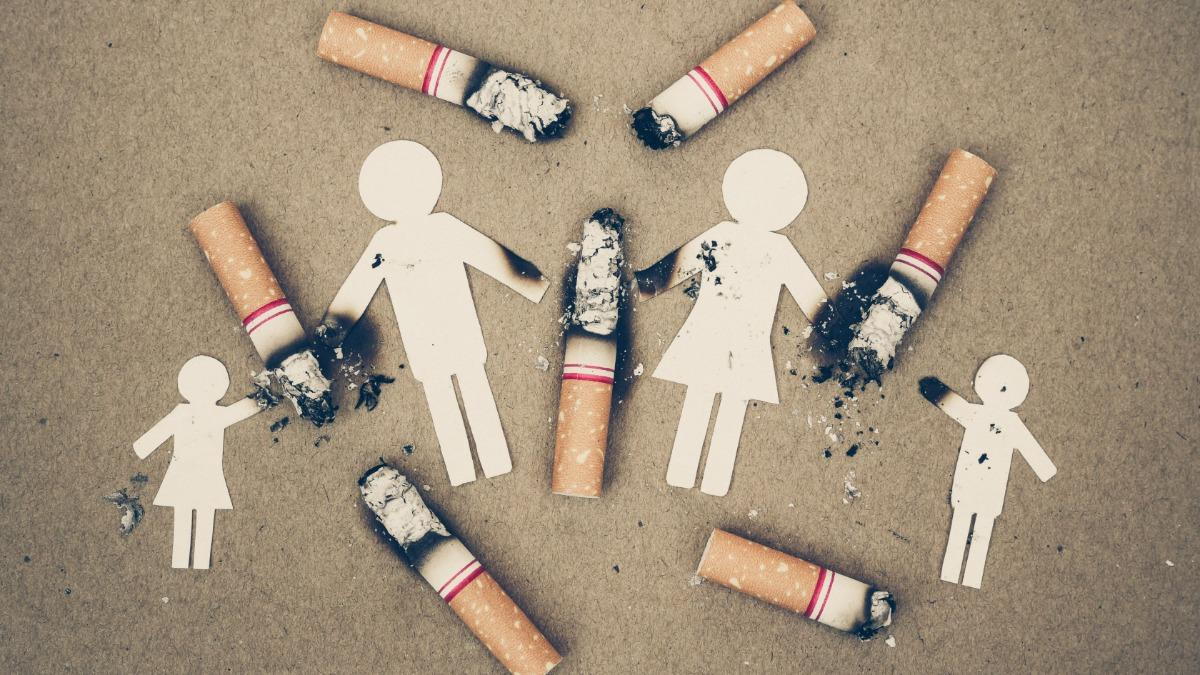
As a parent, ensuring your child’s safety and well-being is your number one priority. You put a lot of thought into their nutrition, their environment, and the people they interact with, all in an effort to keep them healthy. But did you know that second-hand smoke can be one of the biggest, yet often overlooked, threats to your child’s health? Many parents don’t realize just how dangerous second-hand smoke can be, especially for children. Whether you are visiting a McKinney clinic or reading this article from the comfort of your home, understanding the dangers of second-hand smoke is essential for protecting your little ones.
What is Second-Hand Smoke?
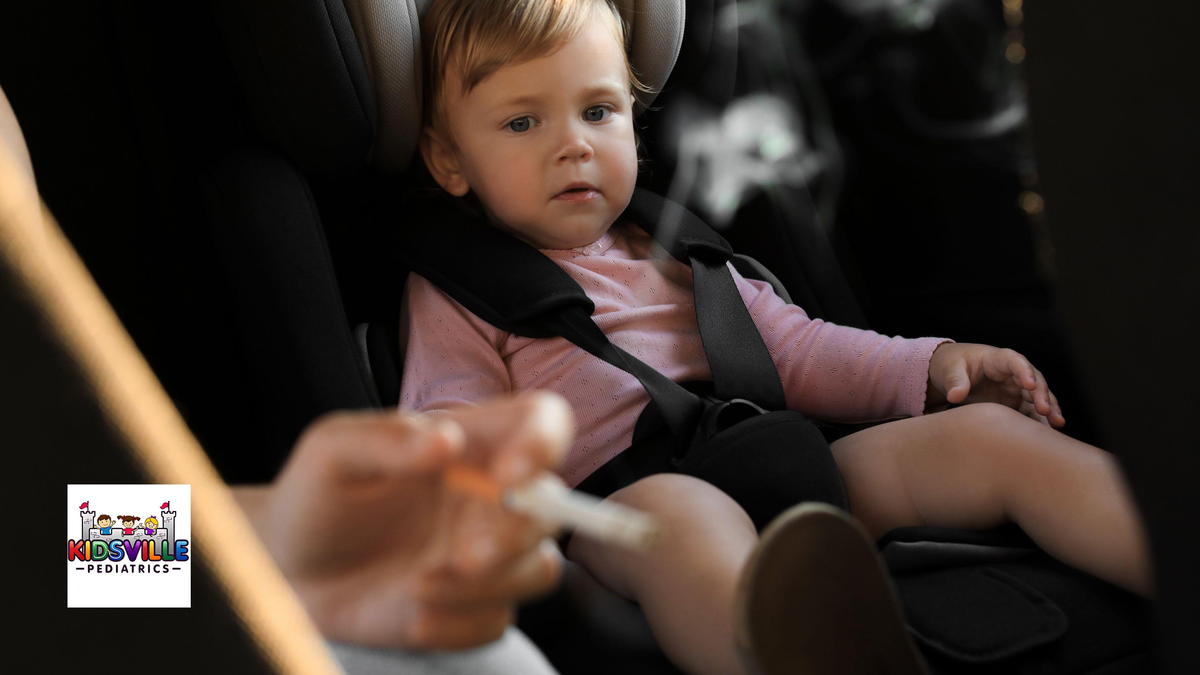
Second-hand smoke is the harmful mixture of chemicals and gasses that come from burning tobacco products, like cigarettes, cigars, or pipes. This smoke contains over 7,000 chemicals, many of which are known to be toxic or cancer-causing. What most people don’t know is that second-hand smoke doesn’t just affect the person who smokes; it can also harm those nearby. And, when it comes to children, this invisible threat is even more dangerous. If you are ever unsure about the dangers, the best pediatrician in McKinney TX can explain how harmful second-hand smoke can be for young children.
Why is Second-Hand Smoke Dangerous for Children?
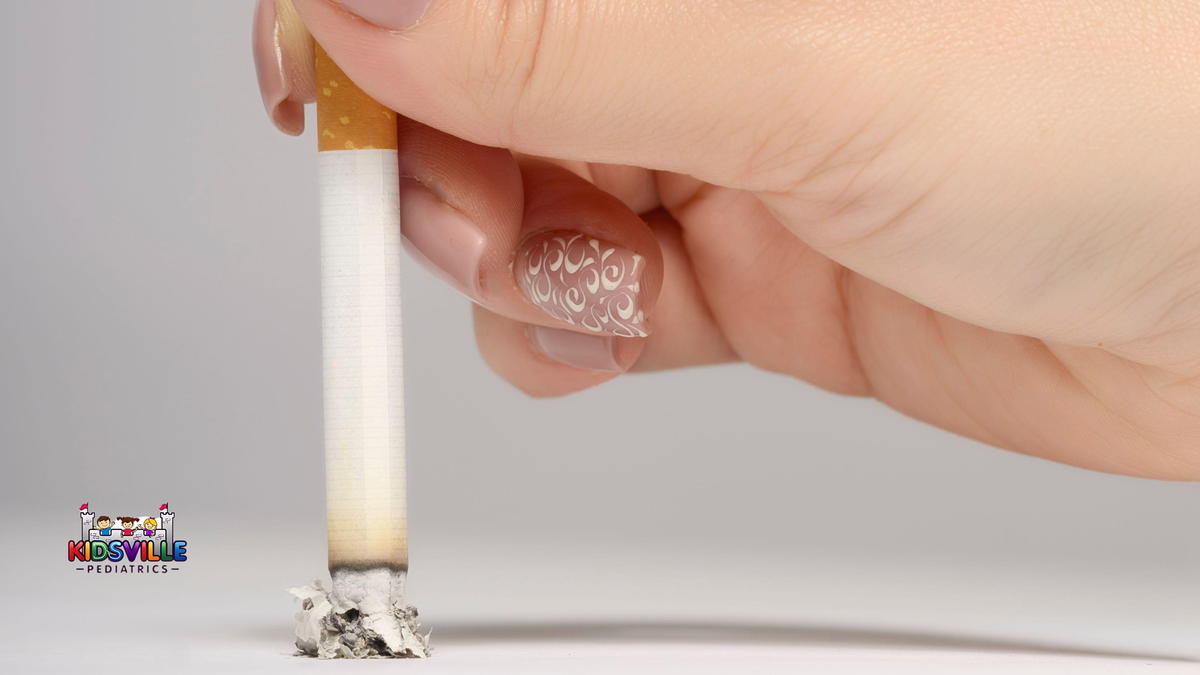
Children are particularly vulnerable to second-hand smoke for several reasons:
Smaller Lungs and Airways: Your child’s lungs and airways are smaller and still developing, making them more susceptible to the harmful effects of smoke. Pediatricians emphasize that because children breathe faster than adults, they inhale more harmful chemicals into their lungs.
Weaker Immune System: As your child’s immune system is still maturing, it’s not as effective at fighting off toxins, which makes them more likely to develop respiratory illnesses and infections when exposed to second-hand smoke.
Increased Time in Close Quarters: Kids often spend time in cars or indoors, environments where smoke can easily accumulate. At a pediatric clinic, experts highlight that this prolonged exposure can make second-hand smoke even more dangerous.
More Sensitive to Allergens: Second-hand smoke can worsen asthma and other allergies, which are common among children. A visit to your McKinney pediatrician can help assess any allergic reactions or respiratory conditions that might flare up due to smoke exposure.
Health Risks of Second-Hand Smoke for Children
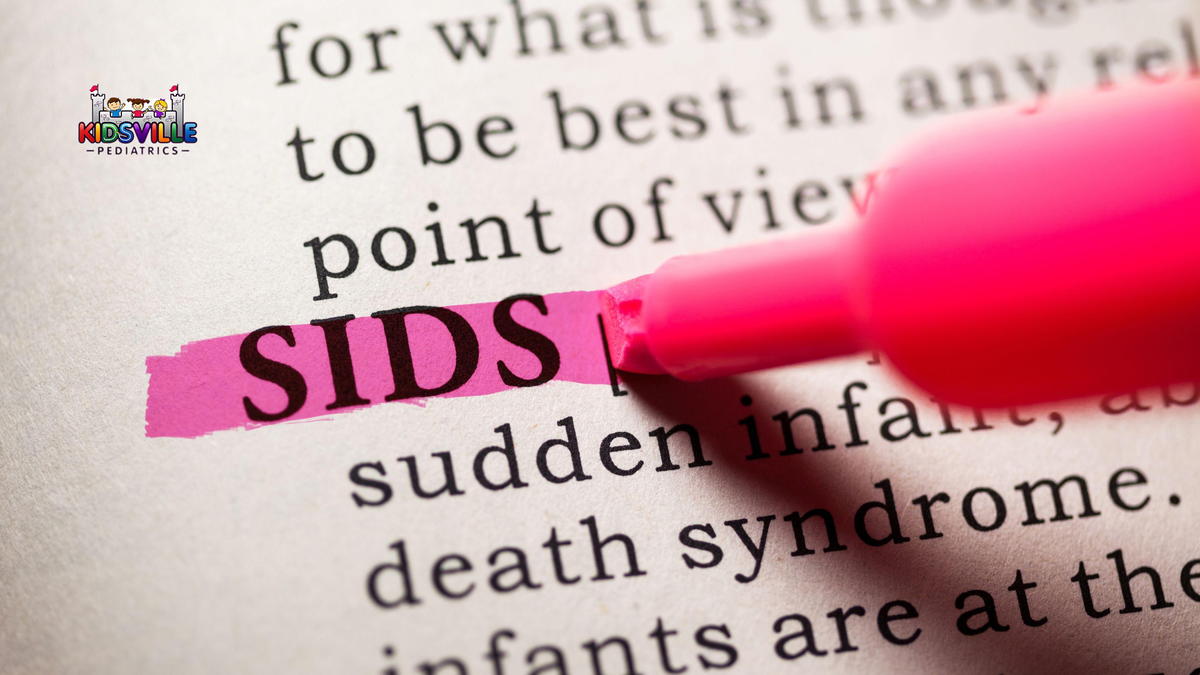
The health risks associated with second-hand smoke are severe, and they can affect children both immediately and in the long run. Here are some of the risks:
1. Respiratory Issues
Second-hand smoke can cause breathing problems such as wheezing, coughing, and shortness of breath. If your child already suffers from asthma or allergies, the risk of an attack increases. A visit to your McKinney pediatrics doctors can help manage and monitor respiratory issues caused by smoke exposure, especially for children with preexisting conditions like asthma.
Asthma: Kids with asthma are more likely to experience flare-ups if they’re exposed to second-hand smoke. Smoking around children can make it harder for them to control asthma symptoms.
Bronchitis: The irritation caused by second-hand smoke can also lead to chronic respiratory infections like bronchitis. Pediatricians can identify symptoms early on and help provide the necessary treatments.
2. Increased Risk of Sudden Infant Death Syndrome (SIDS)
Infants exposed to second-hand smoke have an increased risk of SIDS, also known as crib death. Studies have shown that smoking during pregnancy and after birth both contribute to this risk. If you have an infant, a pediatrician can help explain the ways second-hand smoke can affect your baby’s safety.
3. Developmental Delays and Learning Disabilities
Second-hand smoke can also impact your child’s cognitive and motor development. It has been linked to delays in speech, attention, and motor skills. Children who are exposed to second-hand smoke may experience learning difficulties as they grow. If you are concerned about your child’s development, your pediatrician McKinney expert can offer guidance and support in addressing these potential issues.
4. Ear Infections and Hearing Problems
Kids exposed to second-hand smoke have a higher risk of developing ear infections. The smoke irritates the airways and causes fluid buildup in the middle ear. Recurrent ear infections can lead to hearing problems and even speech delays. At Kidsville Pediatrics McKinney, your child can be assessed regularly to identify any ear-related issues caused by second-hand smoke exposure.
5. Increased Cancer Risk
Although the long-term effects of second-hand smoke can take years to show, research has proven that children exposed to smoke are at an increased risk of developing cancer later in life. Second-hand smoke has been linked to lung cancer, and early exposure to harmful chemicals can contribute to other types of cancer. Regular check-ups with your McKinney doctor can help monitor any changes in your child’s health.
The Impact on Babies and Toddlers
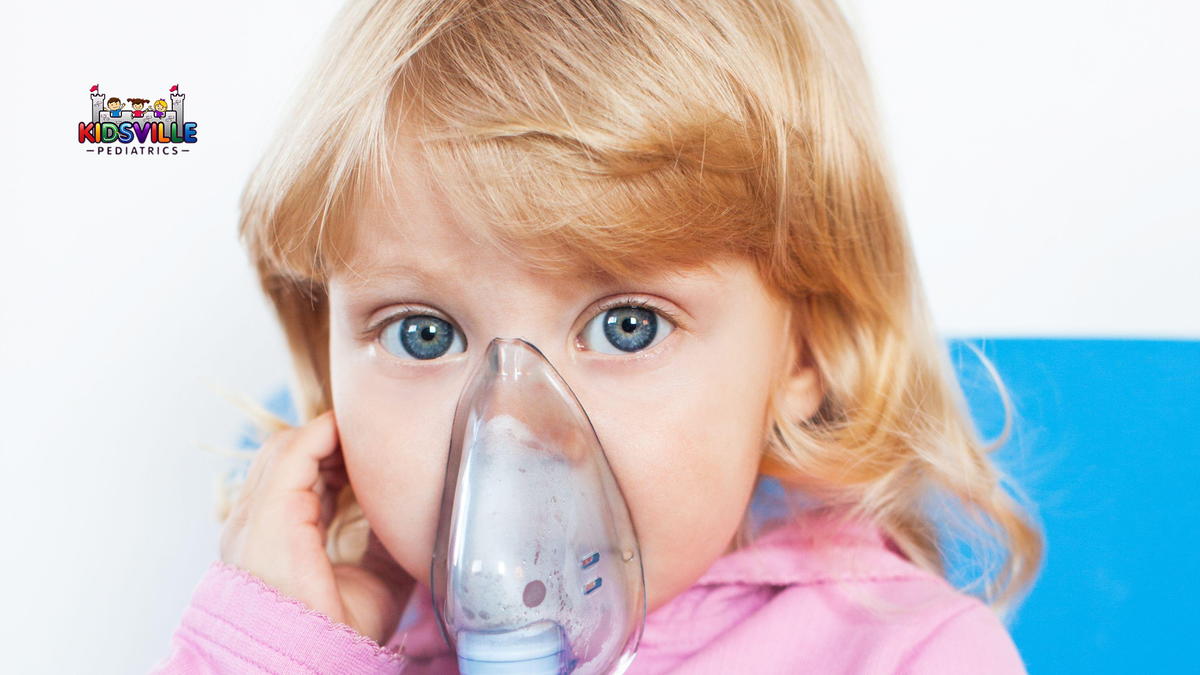
Babies and toddlers are particularly vulnerable to second-hand smoke due to their small size and developing systems. Here’s how exposure can affect them:
Infants: Babies exposed to second-hand smoke are at an increased risk of respiratory issues and SIDS. This includes both smoke from cigarettes and from people who have smoked nearby. It’s essential to create a smoke-free environment at home and seek advice from a McKinney clinic pediatrician if you’re concerned about exposure.
Toddlers: Toddlers are at a higher risk of developing asthma, allergies, and ear infections due to second-hand smoke. The smoke they inhale can cause long-term developmental issues.
How Can You Protect Your Child?
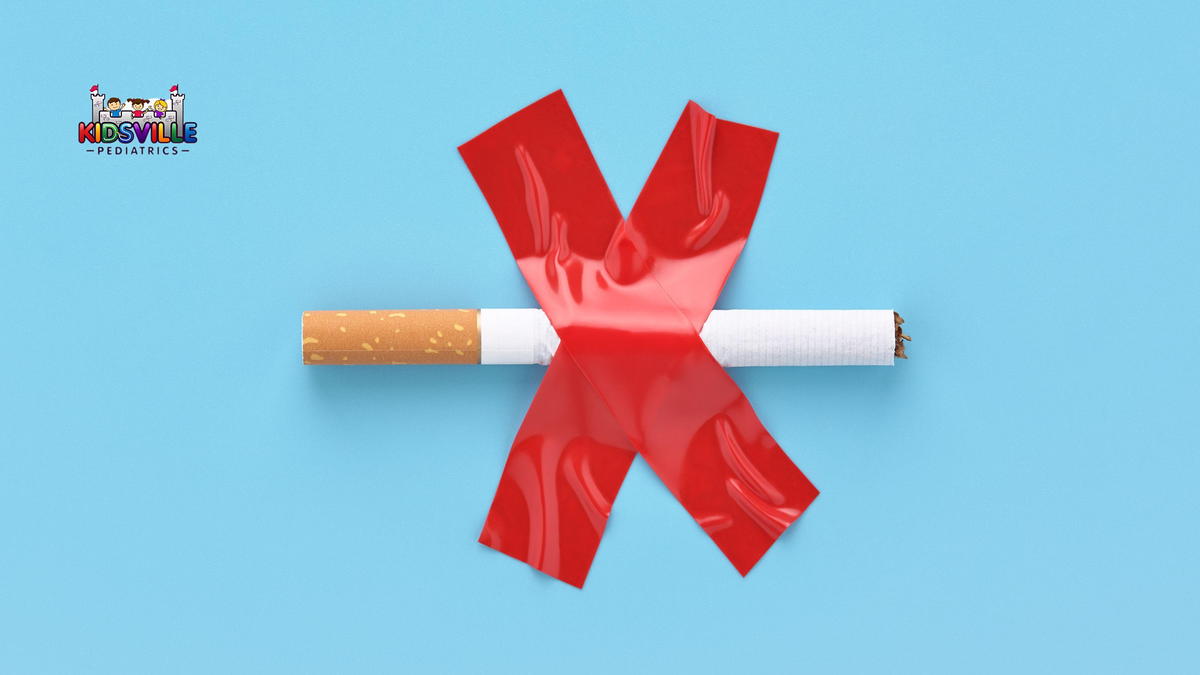
To protect your child from the harmful effects of second-hand smoke, you need to take proactive steps. Here are a few things you can do:
1. Quit Smoking
As a parent, it is best if you quit smoking. This will not only improve your health but also protect your child from second-hand smoke exposure. If you're struggling to quit, a McKinney doctor can help by providing resources and support programs.
2. Create a Smoke-Free Home
Make your home completely smoke-free. No smoking inside, even near open windows or doors. Also, make sure that no one smokes in your car. If you’re unsure of how to approach family members who smoke, medical professionals can offer advice on how to create a healthier, smoke-free environment.
3. Be Cautious When Outside
Avoid public spaces where smoking is allowed, such as certain parks or outdoor events. Exposing your child to second-hand smoke in public places can increase their risk of health problems. McKinney pediatricians can also advise you on places to avoid and how to protect your child’s health in such settings.
4. Encourage Others to Smoke Outside
If family or friends smoke, politely ask them to do so outside. Explain that second-hand smoke is harmful to your child, and you want to do everything you can to protect their health.
5. Ventilate Your Home
If you live in a home where smoking occurs, make sure the area is well-ventilated. Open windows, use air purifiers, and invest in high-quality HVAC filters. Even with ventilation, smoke can linger in the air, so make sure your child stays away from these areas. Pediatricians at your McKinney clinic can advise on further ways to reduce exposure.
6. Visit Your McKinney Clinic Regularly
Regular health check-ups at Kidsville Pediatrics McKinney will help monitor any potential health issues related to second-hand smoke exposure. Be sure to speak to your child’s doctor about any concerns you have and keep them informed of your home and lifestyle changes.
The Bottom Line
Protecting your child from second-hand smoke is one of the most important steps you can take as a parent. The health risks associated with exposure to second-hand smoke are severe and can lead to respiratory issues, developmental delays, ear infections, and even cancer later in life. By quitting smoking, creating a smoke-free home, and regularly visiting your McKinney clinic for health check-ups, you can help ensure that your child has the best chance at a healthy, smoke-free life. Don’t wait – take action today to protect your little one from the dangers of second-hand smoke!
Click to Schedule An Appointment. Or visit/call our clinics: Kidsville Pediatrics Mansfield TX: 682-341-3910; 1759 Broad Park Circle S, Suite 201 & 205, Mansfield, TX Kidsville Pediatrics Southlake: 682-345-8010; 2813 W. Southlake Blvd Suite 100 Southlake, TX Kidsville Pediatrics McKinney: 469-885-9400; 5881 Virginia Pkwy. Suite 300 Mckinney, TX |
